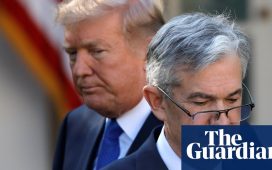
© Reuters. FILE PHOTO: Chief Economist and Executive Director for Monetary Analysis and Research at the Bank of England, Huw Pill meets with reporters in the Reuters’ offices at Canary Wharf in London, Britain, September 5, 2023. REUTERS/Suzanne Plunkett/File photo
By David Milliken
LONDON (Reuters) -The Bank of England (BoE) must not consider the fight against high inflation to be over simply because the pace of price growth has slowed, BoE Chief Economist Huw Pill said on Monday.
“It is important that we do not declare victory prematurely, just because movements which are relatively mechanical in headline inflation are working their way through,” Pill told an event hosted by the OMFIF central banking forum.
He also said financial markets’ expectations for future inflation, as well as a broader loss of public confidence, showed the central bank could not be complacent.
Last week Pill said the question of whether the BoE would need to raise interest rates further was “finely balanced”.
Pill was among the majority of Monetary Policy Committee members who voted last month to keep interest rates on hold at 5.25%, the first time the BoE has voted not to raise rates since it started its tightening cycle in December 2021.
Speaking on Monday, Pill said the BoE still had “some work to do” to make sure inflation fell back to the central bank’s 2% target and stayed there.
Economists polled by Reuters expect data due on Wednesday to show that annual consumer price inflation fell to 6.5% in September from 6.7% in August.
This is down from a 41-year peak of 11.1% in October 2022 but is still far above the BoE’s 2% target, which the BoE does not forecast it will achieve until mid 2025.
Pill said he was concerned that there were persistent, domestically generated elements in inflation that would necessitate keeping interest rates restrictive for some time.
Brexit had made it easier for workers in parts of Britain’s labour market to secure wage rises which were not matched by higher productivity, as it was now harder for employers to recruit staff from elsewhere in Europe, he added.
Asked how much of the BoE’s rate rises had now been felt by the economy, Pill said it was hard to measure but probably greater than the 20-25% estimate given by MPC member Swati Dhingra, who has voted against raising rates all this year.








